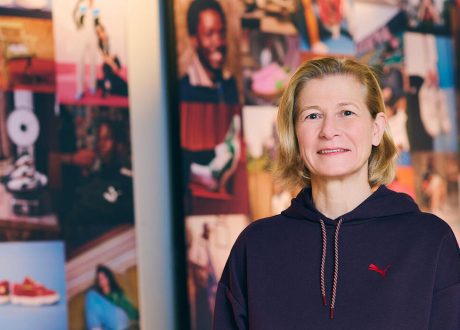
New ISO ESG Implementation Principles provide int’l guidance to streamline ESG practices
New ESG Implementation Principles launched the International Organization for Standardization (ISO) at the 29th United Nations ...

Most classrooms are equipped with blue recycling bins. But as the threat of climate change looms, sustainability practices should go beyond just paper and plastic, Prof. Tasha Lewis, fiber science and apparel design, says.
Her research — about brands’ behavior and the significance of social responsibility — is at the forefront of creating a sustainable fashion industry, echoing a broader movement towards more eco-friendly apparel. Recent protests led by the Cornell Vegan Society, for instance, pushed Cornellians to think about the ethical implications of their clothing choices.
“Working in the industry opened my eyes to many of the sustainability and ethical issues involved with fashion,” Lewis said, whose work in the apparel sector after graduate school inspired her to take up this cause.
Lewis explained that it is often difficult to incorporate sustainable practices in the apparel supply chain, or the movement of fabrics and materials to become clothing. The chain is fragmented, diced among many hundreds of separate suppliers, distributors and retailers.
“All … parts of the supply chain matter and can affect the environment,” Lewis said of the industry, including raw materials, land use and petroleum for transportation and packaging.
But despite those structural issues, efforts to make the clothing industry greener have benefited from changes in consumer preferences — which increasingly demand “more transparency when it comes to know where their clothing from,” Lewis explained, adding that the use of sustainability ratings for companies may also “encourage a greater adoption” of eco-friendly practices.
To meet both buyers’ — and the environment’s — demand for solutions to better mitigate the apparel industry’s negative effects, Lewis’ research now focuses on testing the viability of scalable, garment production processes, such as transforming textile waste into new products to reduce waste.
“We can begin to address the use of virgin resources to create fashion,” Lewis said, describing a goal that involves developing sustainable recycling methods by cutting down on the use of new fabrics and fibers in garments.
While also researching practical solutions, Lewis has tackled the garment industry’s environmental issues in the classroom, teaching courses such as FSAD 2310: Fashion Product Management and FSAD 4440: Global Fashion Management that address sustainability and social responsibility.
As climate change begins to heat up in the media and in society, Lewis expects more fashion brands to weave sustainability with style.
New ESG Implementation Principles launched the International Organization for Standardization (ISO) at the 29th United Nations ...
PUMA has already made strong progress in reducing its greenhouse gas emission over the past ...
The United Nations Trade and Development (UNCTAD) urged during the 29th United Nations Climate Change ...


Very nice article, exactly what I needed.
Very nice article, exactly what I needed.
Very nice article, exactly what I needed.
Very nice article, exactly what I needed.
Very nice article, exactly what I needed.
Very nice article, exactly what I needed.
Very nice article, exactly what I needed.
Awesome and beautiful article. keep it up!